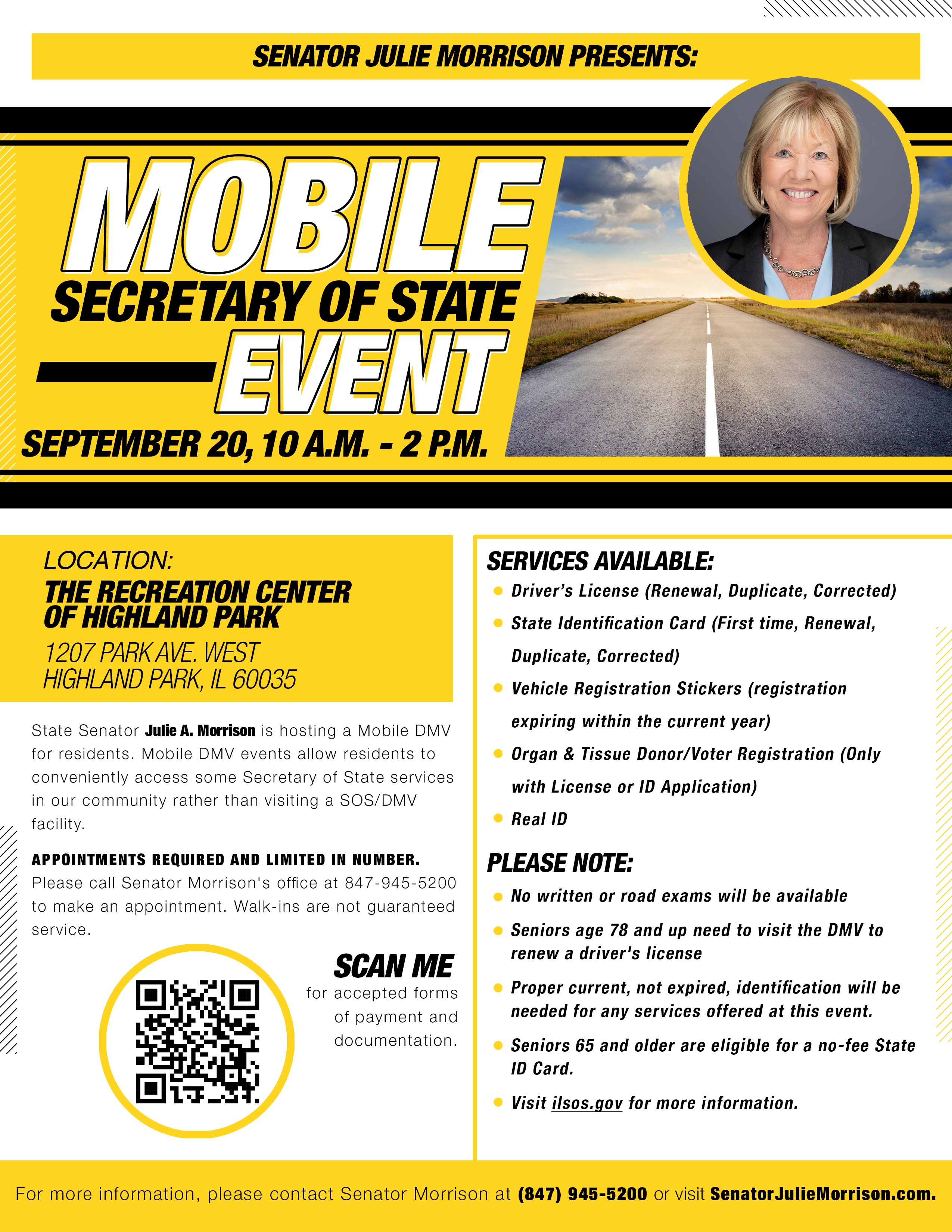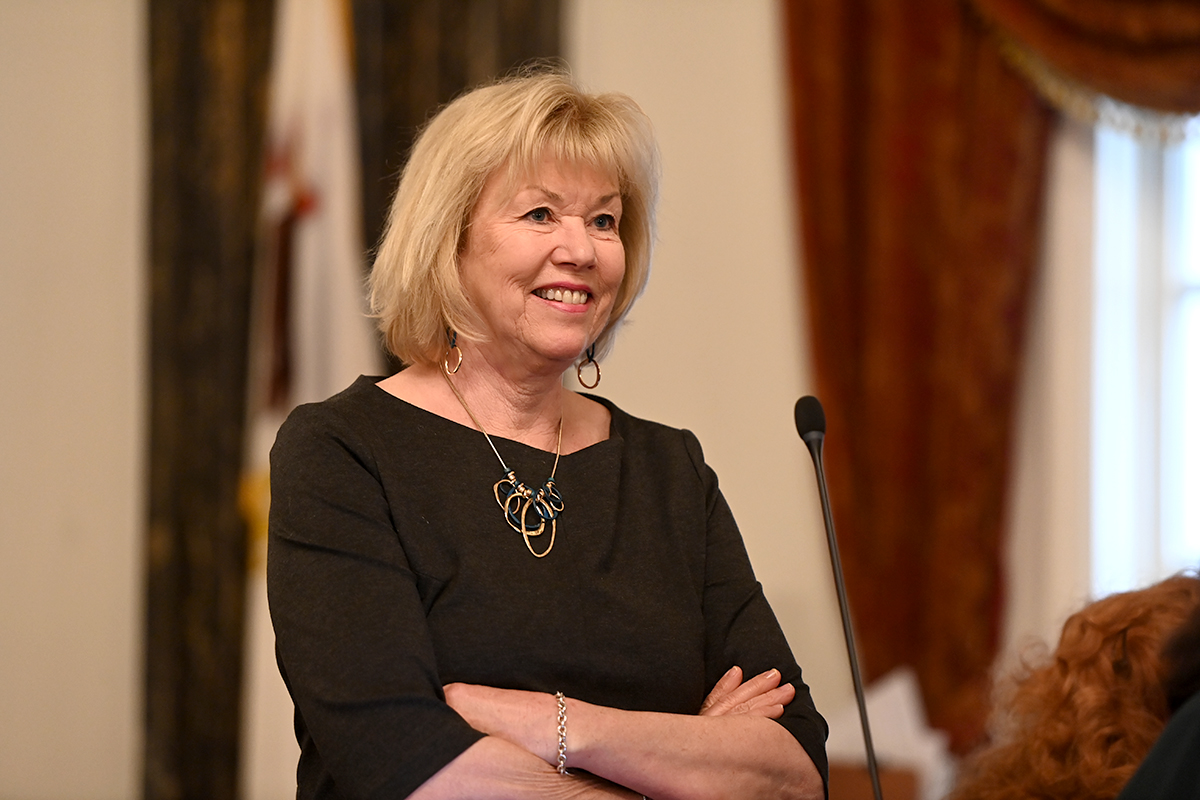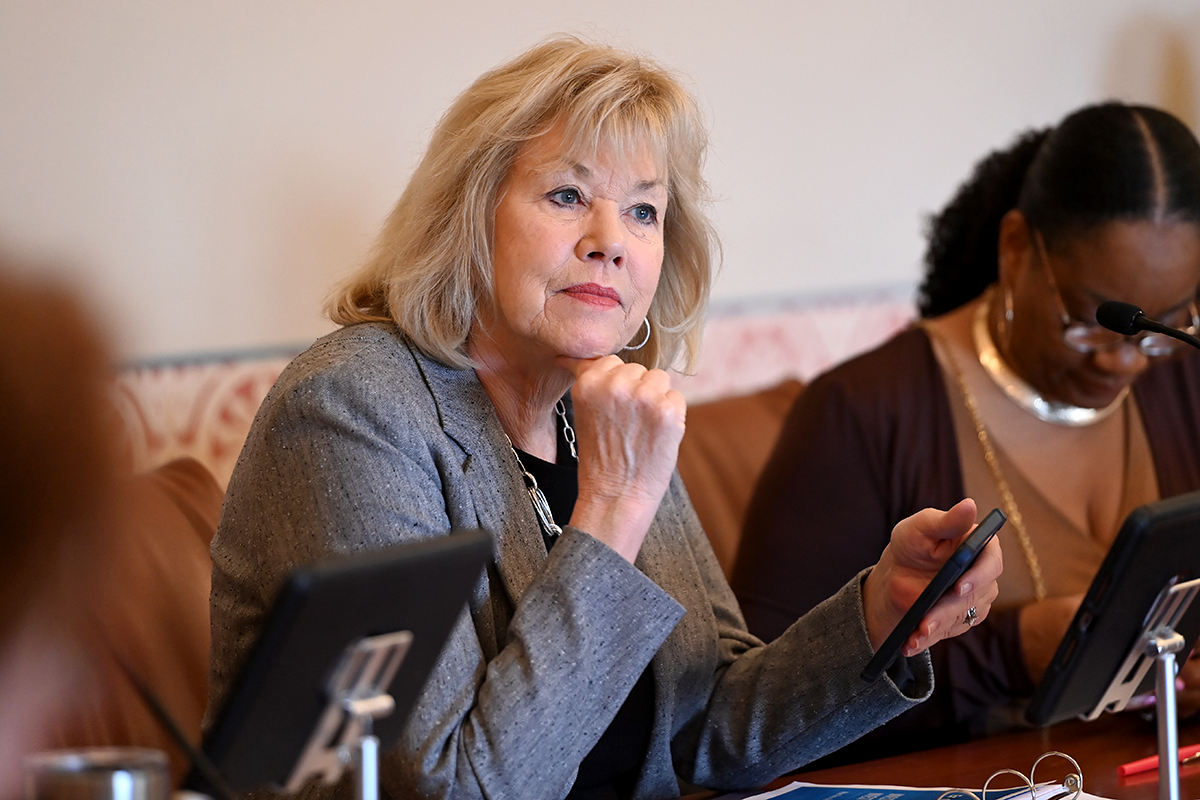- Details
- Category: Latest News

HIGHLAND PARK – State Senator Julie Morrison is hosting a mobile Secretary of State event in Highland Park, which will give area residents the opportunity to access some Secretary of State services at a location in the community, rather than visiting a Secretary of State facility.
“The Mobile Unit makes it easier for some to receive necessary services at a convenient location,” said Morrison (D-Lake Forest). “Spots are very limited, so make an appointment today.”
The event will be held on Wednesday, Sept. 20 20 from 10 a.m. – 2 p.m. at the Recreation Center of Highland Park, located at 1207 Park Ave. W. in Highland Park. Appointments are required and limited to 40 and must be made by calling Morrison’s office at 847-945-5200. Walk-ins are not guaranteed service.
The ability to apply for a first-time Real ID at mobile events was recently added to the list of services available through the Mobile Unit. Other services that will be available are
- Driver’s Licenses (Renewal, Duplicate, Corrected)
- State ID Cards (First Time, Renewal, Duplicate, Corrected) (no fee for ages 65 and older.)
- Vehicle Registration Stickers (expiring within the current year)
- Organ and Tissue Donor/Voter Registration with License or ID Application. (Not available as a standalone service)
Proper documentation must be provided in order for Mobile Unit staff to accept license and ID applications for processing. A chart of acceptable documents may be found at https://www.ilsos.gov/publications/pdf_publications/dsd_x173.pdf
Accepted forms of payment are Visa, Mastercard, AMEX, Discover Credit, and Debit cards. Personal check or money for the exact amount due for services dated on the date of the transaction.
No written or road exams will be administered. Drivers aged 78 and older will need to visit a Secretary of State facility to renew their driver’s license.
- Details
- Category: Latest News
SPRINGFIELD – A steadfast champion of Illinois laws to keep harmful tobacco products away from young people, State Senator Julie Morrison expanded upon her work passing a measure to ban e-cigarettes inside public places, which was signed into law Friday.
“A tobacco epidemic continues in our state,” said Morrison (D-Lake Forest). “We have made great progress, but the surge of use of e-cigarettes has threatened that progress and lured more people toward a deadly addiction. I am proud to have passed a measure to ban the use of e-cigarettes indoors, and I thank the Respiratory Health Association and American Lung Association for their advocacy.”
Passed in 2007, the Smoke Free Illinois Act prohibited smoking in public and within 15 feet of entrances, and required “no smoking” signs to be posted on the prohibited public place. However, this law took effect when people primarily smoked cigarettes and cigars.
In recent years, the use of e-cigarettes – like vapes – has increased tremendously, leading Morrison to work to add such products to the Smoke Free Illinois Act through passing House Bill 1540.
Morrison has been an advocate for putting an end to tobacco use by teens since entering the General Assembly. In 2019, she successfully passed a law that increases the age to legally purchase tobacco to 21 and last year passed a measure to place a number of restrictions on marketing e-cigarettes to children.
“HB 1540 will help to protect workers and all Illinoisans from the harmful toxins and carcinogens in secondhand electronic cigarette emissions,” said Kristina Hamilton, Illinois Advocacy Director, American Lung Association. “We congratulate advocates statewide for creating momentum around reducing the negative effects of e-cigarettes on our communities. We applaud Sen. Morrison and Rep. Lilly for championing HB 1540 in the General Assembly and Governor Pritzker for signing it into law.”
House Bill 1540 was signed by the governor Friday.
- Details
- Category: Latest News
HIGHLAND PARK – State Senator Julie Morrison was recognized by the Highland Park City Council for her steadfast work in leading a comprehensive law allowing law enforcement to use drones to monitor large events and identify public safety issues.
“It’s more pertinent than ever that law enforcement are equipped with the most modern tools and training to keep communities safe,” said Morrison (D-Lake Forest). “It’s simple: drones will save lives. I thank the Highland Park community for trusting me to represent them in Springfield and bring forth commonsense legislation to make our community safer.”
The law came nearly a year after Morrison’s family and hundreds of people in the Highland Park community ran for their lives as a gunman opened fire on the town from a rooftop, killing seven and injuring 48.
Morrison immediately got to work to put forth legislation to ensure parade goers – and other attendees of large events – can live with better peace of mind. Her measure – House Bill 3902 – allows law enforcement to use drones to monitor special events, like parades and festivals, to detect breaches and identify public safety issues.
It garnered support from Governor JB Pritzker, who said the new measure will give law enforcement another tool to keep our communities safe.
”Part of addressing public safety means constantly adapting to new technologies and tools that can protect our communities, and Senator Morrison’s bill does just that,” said Governor JB Pritzker. “Alongside the banning of assault weapons and strengthening penalties on ‘ghost guns,’ this important law gives law enforcement another tool to work to ensure that Illinoisans can gather together in times of celebration or remembrance without fear of becoming another mass shooting statistic.”
The measure was signed into law June 16 and took effect immediately.
- Details
- Category: Latest News
SPRINGFIELD – State Senator Julie Morrison led a new law to eliminate harmful plastics in drinking water.
“While the prevalence of microplastics is well known, the potential environmental and human health effects are not yet fully understood,” said Morrison (D-Lake Forest). “With increasing levels of plastic being found in our waterways, it is of even greater importance to reduce consumption of plastics whenever possible.”
Morrison’s law requires the Illinois EPA to create a public website with information regarding microplastics and submit a report to the General Assembly and governor regarding microplastics, including what other states are doing to address their prevalence.
Microplastics – very small pieces of plastic often undetectable to the human eye – have been discovered in bodies of water across the globe and have showed up in the digestive tracts of aquatic animals and birds.
“We know microplastic contaminants in our waterways have become a dangerous, expansive problem nationally, but with this law, we will come much closer to understanding the scope of the problem in Illinois,” said Morrison. “We must take microplastic contamination seriously.”
Senate Bill 1563 was signed into law Friday.
More Articles …
Page 12 of 97








